By Soniya Gaonkar on Aug 11, 2020 5:33:50 PM
Still wondering and confused about all the documents, registration papers, and tax receipts you will have to come across when registering your home? Well, don't worry. We have the answer to all frequently asked questions about home registrations to make the process simple and easy for you. So let's take a look:
1. When And How Can I Convert My Leasehold Property To Freehold?

In the constitution of India, under the seventh schedule, the land is considered as the subject of ‘states’, and so land laws differ from state to state. Conversion of leasehold property to freehold is not valid in some states.
So what is leasehold and freehold property in India?, a leasehold property is a property constructed on a leased land/plot.
The lease is only for a specified period, typically 99 years. On the contrary, a freehold property marks the absolute ownership of the property. The buyer not only owns the house but also owns the land.
The transfer of leasehold property to freehold property can happen either via property purchase or by receiving it as a gift. If the property is built on land, which is leased by the government, it is mandatory to seek permission from the concerned departments and statutory bodies.
In case of an investment, it is essential to have documents such as search report, sales agreement, and sales seed. You can easily convert your leasehold property into freehold if you have the General Power Of Attorney (GPA), a clear sale deed and a NOC (in case the land is under mortgage or rent). You need to pay conversion charge to the authorities also.
2. Can Sale Deed Be Revised For Sale Value?

The sale deed is one of the most important documents when it comes to buying a house. This document validates you as the owner of the property and acts as legal proof of ownership.
The owner of the property has to pay stamp duty when buying a house. The price of the property and all terms and conditions agreed between the two parties for the sale of property are listed clearly on the sale deed.
The state government prescribes a non-judicial stamp paper of fixed value to draft the sale deed of land. As land laws differ from state to state, when it comes to drafting sale deeds, every state has a different value of stamp paper.
Once the sale deed is registered, it cannot be revised for the sale value. In case there has been a shortage in stamp duty at the time of registration, under section 47A of the stamp act, the revenue department will automatically send you a recovery notice,
3. Can Property Registration Be Transferred Without Selling It?

Transfer of property is an act of conveying property from one person to another in the present or in future. According to Section 8 of the Transfer of Property Act 1882, by transferring property, the owner of the property has to transfer all the rights of a property to the new holder. There are various ways of transferring ownership of property:
- Relinquishment
- Sale
- Gift
- Mortgage (Temporary)
- Lease
- Leave and license agreement
Once a property has been transferred by way of relinquishment, sale, or gift deed in the “name” of the new recipient, it is mandatory to have the transfer recorded in the municipal records by the way of mutation. Stamp duty on transfer is payable as per whatever state laws are applicable.
The stamp duty on gift deeds may or may not be equal to the general stamp duty you pay on selling or relinquishing the property. It is different for different states in India. In case of transfer of immovable property, the circle rate is the minimum price at which stamp duty is payable. Circle rates differ within cities in the same state and among various localities of a city.
Explore more residential properties in Pune, Maharashtra.
4. What Are Capital Gains On Property Purchase?

Land is a capital asset, and as an appreciated asset, a landowner can make substantial capital gains on its sale. The long term capital gain tax rate is 20% for property sale. At the same time, the short term capital gain is taxed as per the applicable slab rate. The land is considered as a short term capital asset when held for 36 months or less (i.e. up to 3 years).
If the land is held for over 36 months, it is considered as a long-term capital asset. So tax implications also vary based on the duration for which you own an asset. To arrive at the calculation of the capital gain, you will have to reduce the indexed cost of acquisition from the selling price.
The long term capital gain tax is calculated by multiplying the tax rate of 20% with the capital gain amount. Short term capital gain tax on the property is taxed by including the short term capital gain under total income for the individual and is taxed on the basis of the applicable slab rate.
Related Post-Frequently Asked Questions About Home Registration
5. What Is Stamp Duty? Who Is Liable To Pay Stamp Duty?
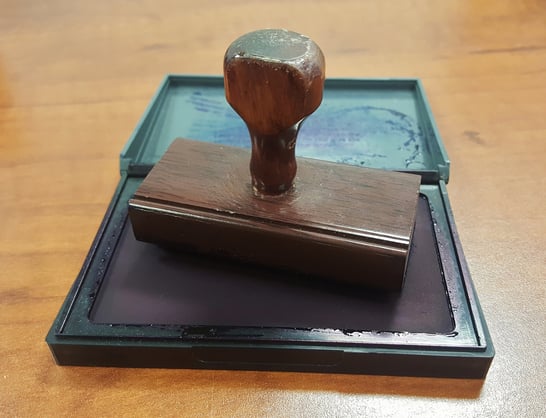
Stamp duty is payable under Section 3 of the Indian Stamp Act, 1899. It is a tax similar to sales tax and income tax collected by the government and must be paid in full and on time. It acts as evidence for any sale or purchase of a property.
You will have to get the property registered in your name in the local municipal records with the seller documenting that the property is being transferred to you.
Stamp duty is considered as a proper and legal document and is collected on the basis of property value at the time of registration. Stamp duty’s amount varies from state to state and also depends on property type - old or new.
The liability of paying stamp is usually of the buyer regardless of agreement, and in case of property exchange, both seller and the buyer have to share the stamp duty equally.
The document can be stamped online as well. Stamp duty is payable before the execution of the document or on the day of execution of the document or on the next working day of execution. If there is a delay in the payment of stamp duty, it attracts a penalty. Document not properly stamped is not admitted as evidence by the court.
6. Do I Get Tax Benefits On Stamp Duty?
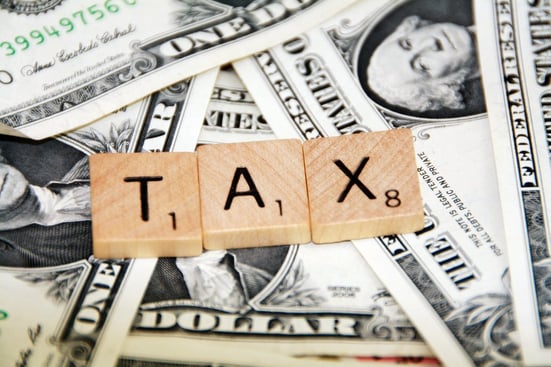
Tax benefit on registration and stamp duty tax on buying a property in India could be claimed under Section 80C of the Income Tax Act, 1961. The overall deduction limit under Section 80C ─ which offers rebates against a wide range of investments including PF, PPF, life insurance, home loan principal, etc. is INR 1.5 lakh in a year and cannot exceed the amount. Stamp duty and registration charges are the largest expenses, which have to be paid while buying a house or a property.
Stamp duties and registration charges sum up to about 8-10% of the total cost of the property. Income tax benefits on stamp duty and registration can only be claimed by an individual or a HUF (Hindu Undivided Family).
Tax on the purchase of property in India can be deducted only if the property is in the name of the individual and the expenses should be paid by the individual himself.
For claiming the expenses, the payment of expenses and the possession of the house must be in the same financial year. In case a property is owned jointly, based on their share in the property, the expenses can be claimed by the co-owners.
7. What Are The Taxes That I Need To Pay When Buying A Property?
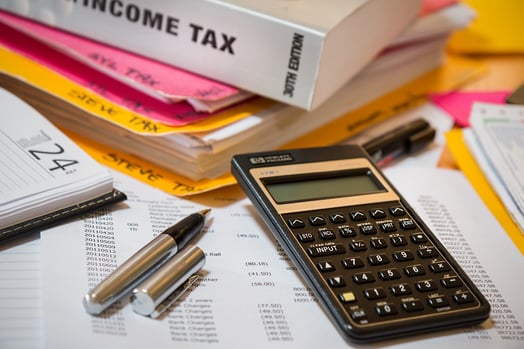
The types of property tax to be paid for the property are-
Home loan interest tax exemption is applicable on both ready-to-move-in property and under-construction property. One of the major attractions of ready-to-move-in properties is that they are exempted from Goods and Services Tax (GST). Buyers need to pay only the stamp duty and registration charges as taxes, which comprise 7-8% of the total property cost. Thus, ready-to-move-in properties offer a good value proposition for homebuyers.
Registering the documents relating to the transfer, sale or lease of a property is mandatory by law under Section 17 of the Indian Registration Act, 1908. Home loan interest tax exemption under-construction property includes stamp duty, registration, and GST. Statutory and legal costs for under-construction properties range from 15- 20%. Stamp duty is paid on the sale agreement to render a property transaction legal, and it varies from state to state.
Stamp duty accounts for around 5-7% to the total property acquisition cost. To register a sale agreement, buyers have to pay a registration fee of 1% on the total cost of the property at the district sub-registrar’s office. Since 2017, under the new tax regime, under-construction properties are taxed at 12% on a property’s base cost.
8. What Are The Income Tax Benefits That One Gets When Paying Pre-EMI Of An Under-Construction Property?
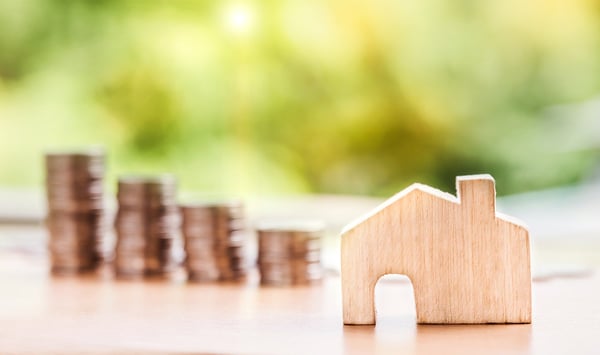
Pre-EMI is relevant while availing a home loan when the building's construction is yet to be completed. The Pre-EMI depends on the types of house property in income tax. For an apartment under construction, the builder’s payment is somewhat dependent on the stages of construction.
The disbursement is made partially and is linked to the various stages of construction dependent on the builder. The loan repayment (EMI) starts only after the full loan amount has been given to the builder. The interest component to be paid on pre-EMIs is the amount of interest accrued on the amount disbursed until then.
For the period, during which such property remains under construction, the buyer still has to pay the interest on disbursements made during that period till construction is completed and possession is handed over.
On completion of the construction, the total pre-EMI interest paid in the subsequent years is deductible in 5 equal instalments. For instance, on a Pre-EMI of INR 5 lakhs, INR 1 lakh will be depicted as a tax deduction for the next five years.
9. Is There Any Service Tax On The Under Construction Property?
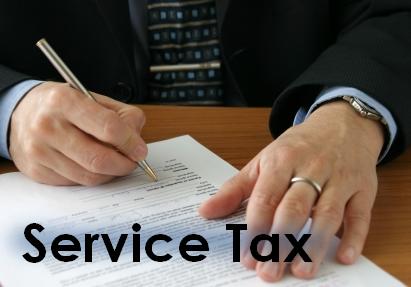
GST has replaced the earlier twin taxes including service tax, and Value Added Tax (VAT) levied from the buyers of an under-construction property, in addition to various taxes paid by the builders on the materials and services used in construction activities. GST substitutes the service tax on under-construction property in Maharashtra with VAT, entry tax, etc.
Under the GST regime, the under-construction property is taxed at 12%. GST will be applicable on sale of under-construction property or ready-to-move-in flats, where the completion certificate is not issued at the time of sale. To boost the demand in the real estate sector, the GST Council, on February 24, 2019, slashed tax rates for under-construction flats to 5 per cent and affordable homes to 1 per cent.
10. What Is Property Tax? How Is House Property Tax Calculated?
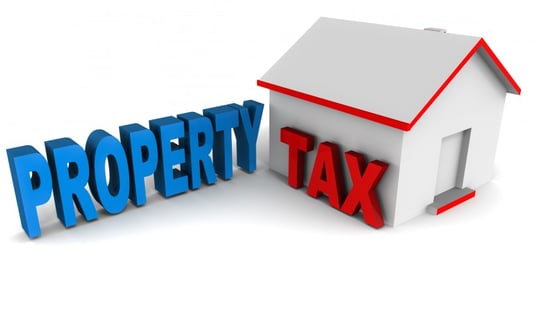
Property tax in India is levied by the municipal authorities including Panchayat, Municipality, or the Municipal Corporation on real estate. Let's first understand what is property tax in India?, Property tax is calculated according to the recent property valuation conducted by the municipal body.
The rate of property tax and manner of valuation varies from one municipal authority to others. Only the owner of the property is liable for paying the property tax. There are three ways of calculating property tax:
- Capital Value System (CVS): The tax is levied as a percentage of the market value of the property.
- System Rateable Value System (RVS) or Annual Rental Value: Under this system, the tax is calculated on the yearly rental value of the property.
- Unit Area Value System (UAS): In this method, the tax is levied on the per-unit price of the built-up area of the property. This price is fixed as per square foot per month and is based on the expected returns of the property as per its location, land price, and usage, and is then multiplied with its built-up area,
Related Post- How to Save Tax on Real Estate Investment?
11. What All Does The Term Property Include For The Purpose Of Income Tax?
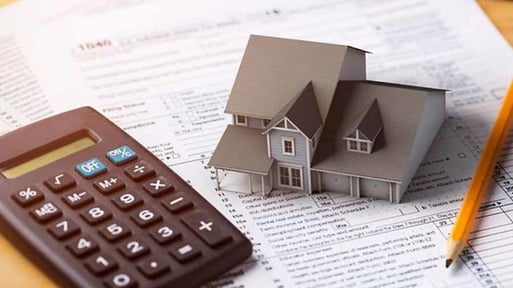
The term property for the purpose of Income Tax Act, 1961 is limited to any building including land forming an integral part of that building, necessary for the use of the building, and is not used for any other purpose which may generate taxable income. So what type of tax is property tax?, it is the annual amount paid by the landowner to the local government or the municipal corporation of his/her area.
The property includes all tangible real estate property, his/her house, office building, and the property he/she has rented to others. Central government properties and vacant properties are generally exempted. Property tax comprises lighting tax, water tax and drainage tax.
A paid parking lot will not be considered as a part of the building and will be treated as separate property. Tax on rental income from a vacant plot is charged under the head income of other sources. Income from property used for business and profession will be taxed under the head income from profits and gains from business or profession.
12. What Forms Of Long Term Capital Gains are Exempted From Taxation?

Under Section 54, long term capital gain tax exemption in India states that the assesses can get an exemption from the sale of house property by investing in up to two house properties against the earlier provision of one house property with same conditions. However, the capital gains on the sale of house property must not exceed INR 2 crores.
The tax exemption limit of capital gain on purchase of property for the fiscal year 2019-2020 is as follows:
- Resident individuals who are below 60 years with an annual income of INR 2.5 Lakh
- Residential Indians between 60 to 80 years of age will be exempted from long-term capital gains tax in 2019 if they earn INR. 300,000 per annum
- Residential Indians of 80 years of age or above will be exempted if their annual income is below INR 500,000
- Non-resident individuals with an annual income of INR 2.5 Lakh
- Hindu Undivided Families can enjoy tax exemption if the annual income of their family is under INR 250,000
Capital gains accrued through a transfer of long-term capital assets come under this capital gains exemption. Individuals can avail long-term capital gain exemption if they reinvest in specific securities such as government securities, targeted debentures, UTI units, government bonds, etc.
13. What Is TDS On Property Above 50 Lacs?
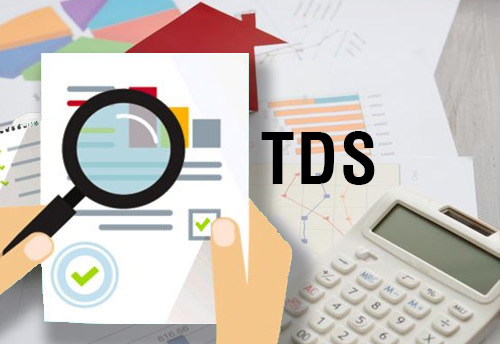
The provisions of Section 194-IA is related to TDS on Sale of Property with value exceeding or equal to INR 50 Lakhs. TDS @ 1% is to be deducted on all Property Transactions, which are above INR 50 Lakhs. TDS on property purchase above 50 lacs has to be deducted at source when the buyer pays the seller.
This TDS is to be deducted on all types of property transactions irrespective of whether the property in consideration is a flat or a building or a vacant plot. TDS is to be deducted irrespective of whether it is a residential property or commercial or industrial property.
TDS on property value of above 50 lacs is to be deducted on all types of property transactions except agricultural land. Even when the amount is paid in instalments, one is liable to deduct TDS @ 1% on the amount paid if the total amount paid is equal to or exceeds INR 50 Lakhs.
If GST is levied on transaction value for the purchase of property then TDS will be deducted on the amount excluding GST amount. No TDS is required to be deducted if sale consideration is below 50 lakhs.
For more article please visit our blog: https://blog.kohinoorpune.com/












comments